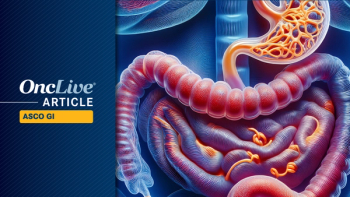
Dr. Slamon on OS Results of the MONALEESA-3 Trial in HR+/HER2- Breast Cancer
Dennis J. Slamon, MD, PhD, director, Clinical/Translational Research, Revlon/University of California, Los Angeles (UCLA) Women's Cancer Research Program, Jonsson Comprehensive Cancer Center, UCLA, discusses the overall survival results of the phase III MONALEESA-3 trial in hormone receptor-positive, HER2-negative breast cancer.
Dennis J. Slamon, MD, PhD, director, Clinical/Translational Research, Revlon/University of California, Los Angeles (UCLA) Women's Cancer Research Program, Jonsson Comprehensive Cancer Center, UCLA, discusses the overall survival (OS) results of the phase III MONALEESA-3 trial in hormone receptor (HR)—positive, HER2-negative breast cancer.
Data presented at the 2019 ESMO Congress demonstrated that the combination of ribociclib (Kisqali) and fulvestrant (Faslodex) reduced the risk of progression or death by approximately 28% versus placebo and fulvestrant in postmenopausal patients with HR—positive, HER2-negative advanced breast cancer. These data were statistically significant and clinically meaningful, says Slamon.
At a median follow-up of 39.4 months, the median OS was not reached in the ribociclib arm and was 40.0 months in the placebo arm (HR, 0.724; 95% CI, 0.568-0.924; P = .00455). Notably, OS was superior with ribociclib/fulvestrant in both the first-line and early relapse/second-line settings, providing the first evidence to show that CDK4/6 inhibitors—specifically ribociclib—confer an OS benefit in the frontline setting for metastatic disease.

































